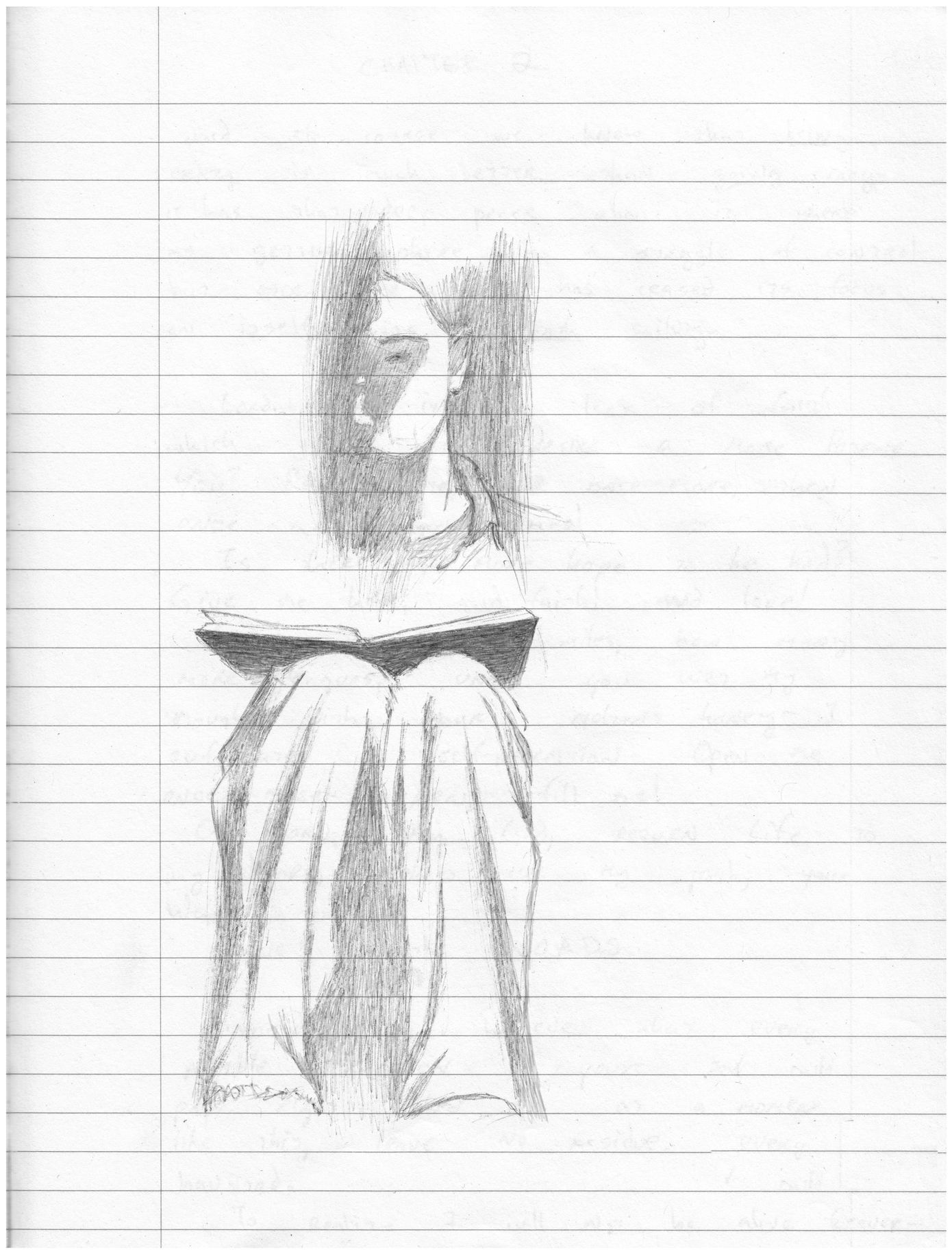As if all the World were there for Word’s musing
The Blackbird Variations, Chapter VII
Part II : CARO
I do so love Space. Especially as she sprawls herself upon the layered earth; allowing the overlapping of mute matter from dense to porous shifting, shaping wind and water to conspire into microbe, moss, and fern crosshatching spore and pollen through her supple mien and form; from apparent separation on her surface to a deep relation fixing earth to be a world arisen upward by a one called man who wrangles from her teats his towers and from her climes his cultures what would not be different nor made same without her supine bodice giving him her ground to graft his generations far and to.
I love the lengths Space goes to, on the earth, to allow for manyness to manifest; elemental forces variated into energies and urges of a higher finer discourse such that something such as I—a being made of mere shadow and reflection—may flit upon her surfaces and love her through the minds of man.
And if ’tis true, that each man is a microcosm, an instance of the world distilled into a single body, then a young man is just as layered as the stratum’d earth—sheaves on sheaves of knotted causes and effects. And after tasting so much of the passions he’s found in him, there comes a juncture where he’s offered to loose from all his hesitation and couple without bridle what is in him to what is all around.
And perhaps he does this to recreate the world, or his self, or both—but it is that flinging that is a wonder to behold: that volant budding of his store of unproved potentials bursting forth to vandal all that taunts his fury, thirst, and discontent—and what does that say about Space, sprawled out so patiently to give him purchase? What does that say about his need for her and her love of him?
In an attempt at humor, Thomas remarked to Lilly’s roommate how ‘heterosexual’ Lilly made him feel: the sight of her naked body, ‘a pile of cloud dust, collected on my bed to melt me.’ And Lilly’s roommate sternly scolded that ‘heterosexuality’ was an ancient system of oppression, established for men to “objectify” and “subject” women.
And as my boyman stammered through a polite-enough deflection, I ruminated on this object/subject parlay that cropped up ever in the chatter of his commons—his cohort’s obsession with “objectivity” and “subjectivity” (which I wonder what the Little One would see into, were she to come across that pair and submit them to her rhymed & rhythmic speculation)—but for my part I wondered how else a man is to exert his will upon Space and within Time other than by impressing his objectives into subjected matter to thereby craft his nested hierarchies trailing up and up and down and down in rungs and rungs and rungs—
And more and further: where would man be without the shes he objectifies and in so doing subjects all his being to? Where would he be without those who contain him, situate him, present him with the playing field without which he would be less even than am I, an echo of the real, a shadow reflecting what is world through word and iterating sense and guess and impulse into the subtle realm of ficciones—what of me would be made known without one such as he, and what would he know of anything without the hers he makes his by striving to be a one worthy of being theirs—?
And all us budding into one another so compactly, joyous—that Space, so lovely, opens up her folds that we may find in them positions and now and then touch at the silence that she holds to, that may renew us in our gushing escapades—
Thus as my nascent mythmaker slid from Fresno to Chicago along rails laid out across Arizona and New Mexico, Colorado, Kansas and Iowa into Illinois, without companions on his way-back trip, without the fractaline overtures of the pot or other delusory distractions—with only a sack of food, a bag of clothes, some books and those lined pages that were his to disembowel of emptiness—as the land escaped through terrains whose aged surfaces held no horror to him now, for his one Bright Moment still threaded through him, and secured for him a hopeful notion of the purpose of his kind, who coincide but briefly with this ball of weathered stuff—as he spent his cleared seeing over the southwestern stretches of the empire in which he was born to bear by accidents and intentions lost to time but still alive in him as he imagined all things necessary for this moment paled before all things possible to be given into this world through him and all who, like him, were prepared to take what is given and give it back, renewed, through their pens and brushes, chisels, flasks—and as he stretched his senses as wide as he was able, to embrace all that he could of this world and this moment, I threaded myself gently throughout the northern sky, and did not touch down anywhere, for I, too, had been made light by what was shone on him, and when night came I drifted across the curved observatory window as he traced what was not his shadow, reflecting off the laminated glass.
I saw a tree in a field when I was hitchhiking through Maine last June.
It came out of the blue—or gray—and maybe one them constant crows lead my eye from some-rain-sky to this live oak standing upright in a field.
My intuition broke me free from thought and sense and too the tree was wrenched free from its air and dirt—all context brushed aside, and I was made mute witness to the lonesome oak.


